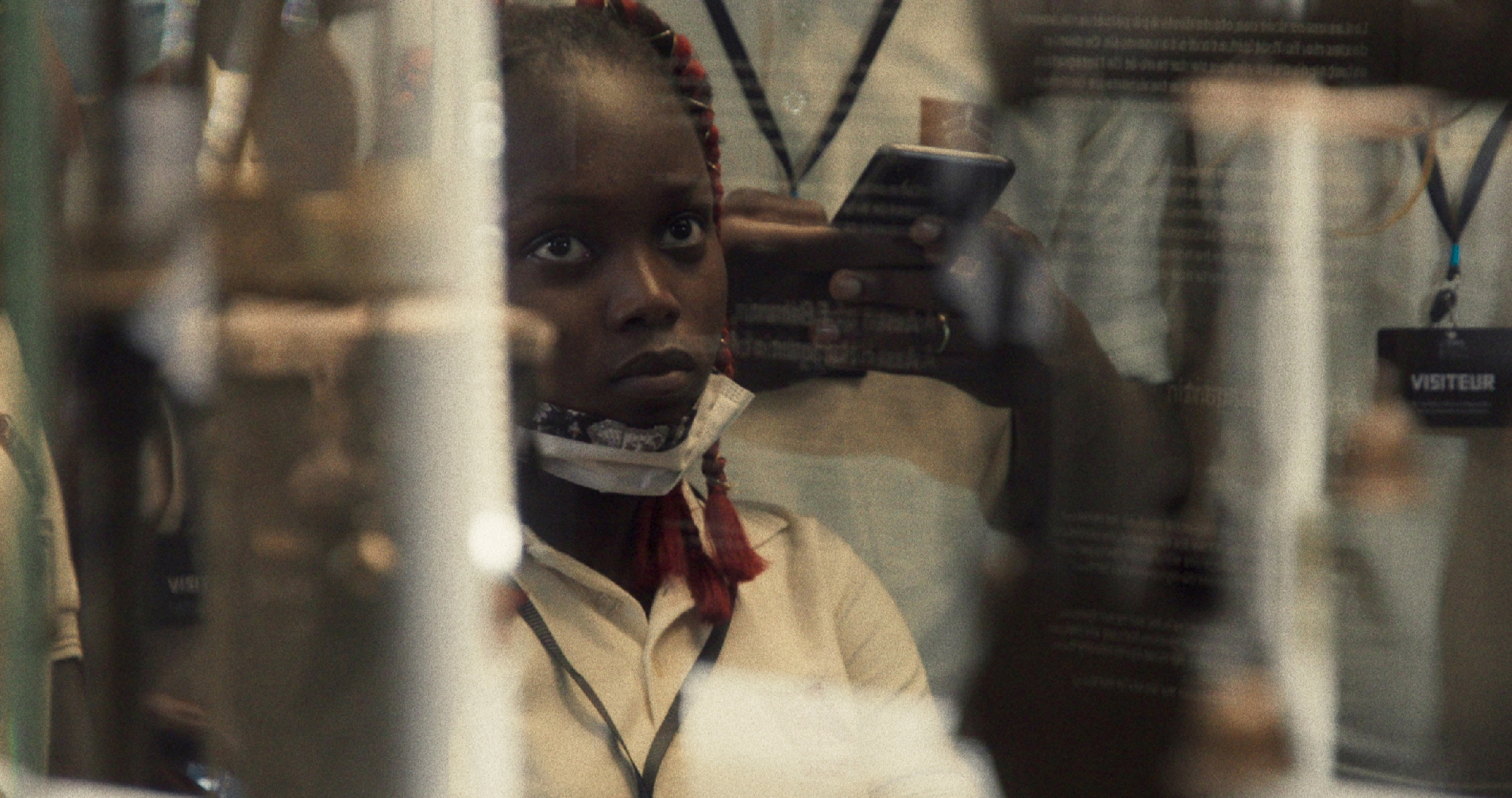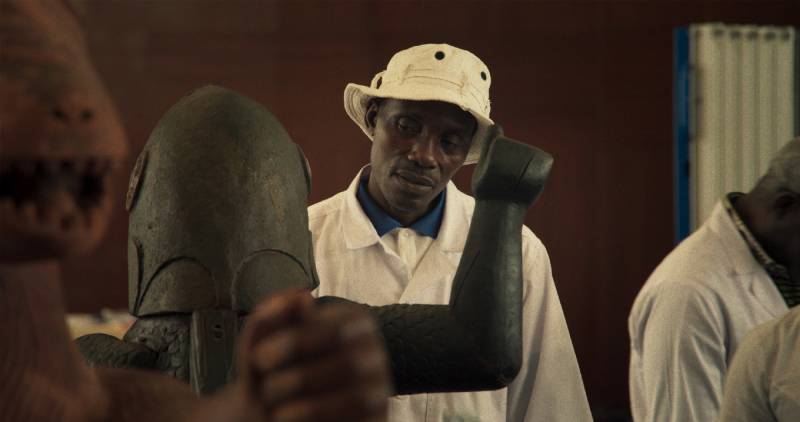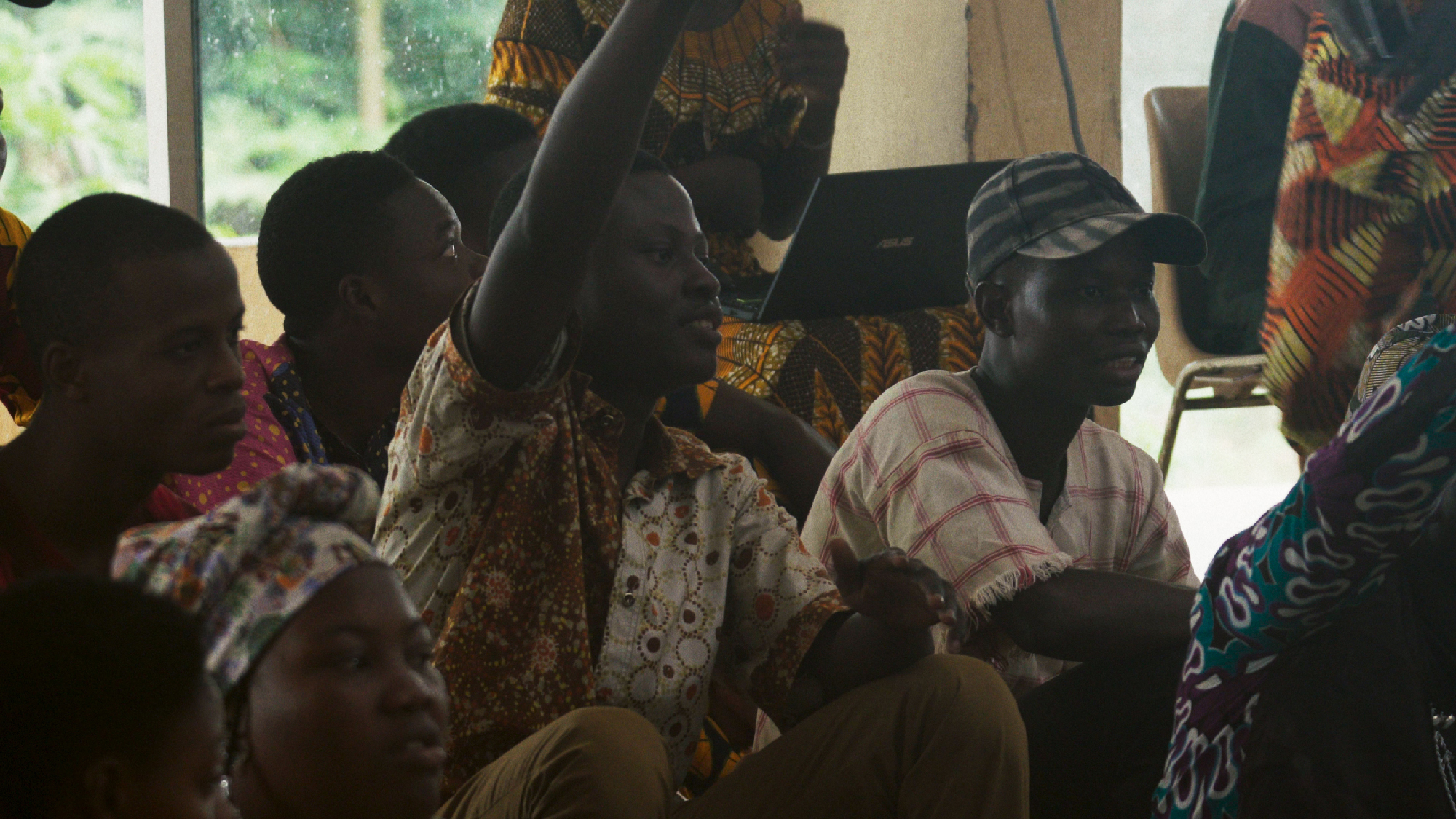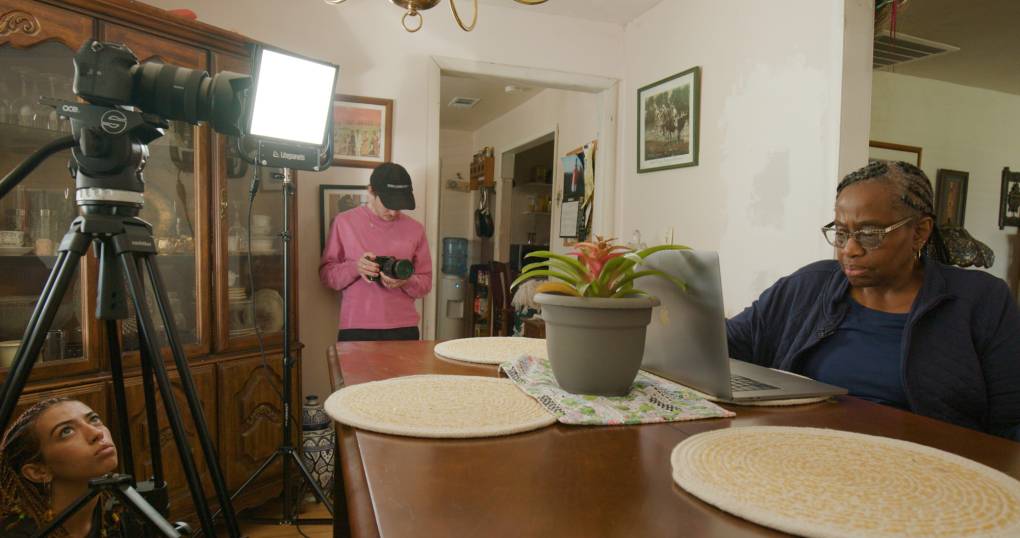French filmmaker Mati Diop’s evocative Dahomey centers on 26 statues and cultural objects — a handful of the estimated 5,000 pieces stolen at the end of the 19th century — that France returned to Benin in 2021. Opening Friday, Nov. 8 at the Roxie after its recent local premiere at the Mill Valley Film Festival, the unexpectedly inspiring documentary transports us along with the crates to West Africa, movingly capturing the immediacy of art in contemporary life.
Before the pieces deplane in Benin, however, and go on view at the Palais de la Marina (the presidential residence) in a historical and artistic celebration of national importance, Diop invites us to contemplate their painful exile in the recesses of Paris’ Musée du quai Branly – Jacques Chirac. She and Haitian novelist and poet Makenzy Orcel give the treasures an internal monologue that evokes the anguish of colonialism and the denial of self-determination.
Diop imbues the pieces with a mournful anger that contrasts with the detached attitude of museum conservators and manual laborers who treat them as physical objects to be measured, packed and forklifted. This opening section effectively makes us question the significance of relics, the relevance of history and the latent power of art.

This has been a topic of conversation forever, of course, in museums and art galleries (and beyond). It may seem more au courant in our digital world where people and events “trend” and vanish in hours. Dahomey gains another resonance in the wake of an election that indicates, among other things, that Americans are largely uninterested in the past and cannot even recall events that took place four years ago.
But let us consider instead the Kingdom of Dahomey, which flourished, in part on enslaved labor and the transatlantic slave trade, for some 300 years. After a decade of wars with France and the overthrow of its King Béhanzin, Dahomey became part of French West Africa in 1904. The Republic of Dahomey won its independence in 1960, and the country renamed itself Benin in 1975.






